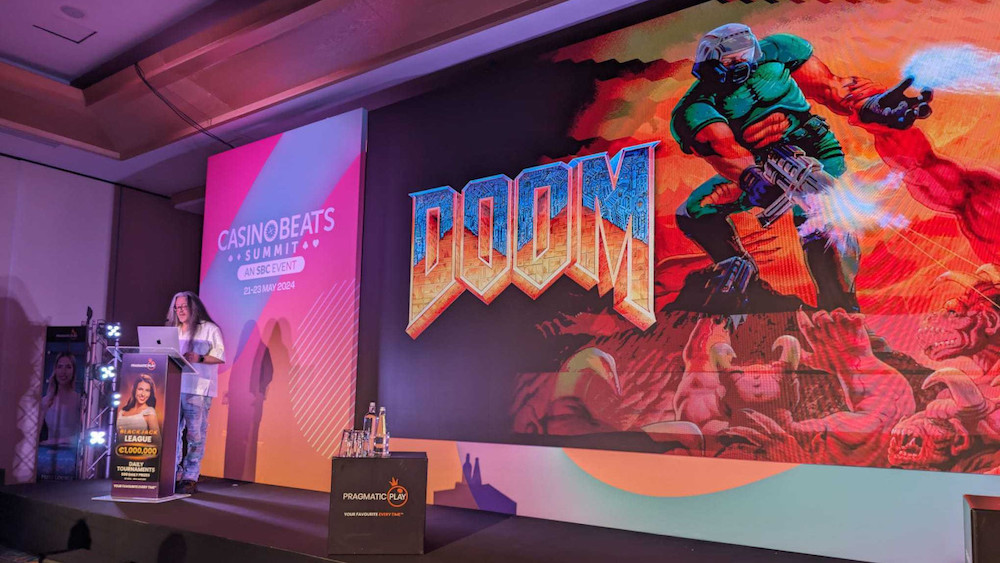Gaming icon John Romero, the father of first-person shooters, emphasised that in 2024 with modern gaming technology growing at a rapid rate, it is truly time for ‘game design to shine’.
His keynote entitled “Bridging Worlds: Nostalgia, Innovation, and the Future – A Journey with John Romero” kicked off the CasinoBeats Summit in Malta by highlighting the similarities in the strategy to engagement in both video games and slots.
He detailed that design needs to be focused on bringing gaming features and key elements of the game to the forefront of their design.
That being said, he was eager to state that designing for the lowest common denominator is crucial when looking to produce a game that appeals to a mainstream audience is key, something highlighted by Facebook gaming designs.
“In order to keep a player in the game, they need to be comfortable with the experience” according to the level designer, who was behind iconic classics such as ‘Doom’ and ‘Wolfenstein 3D, as he lauded immersive tech utilised for big titles seen across casino floors including Wizard of Oz, Rocky and Game of Thrones.
Furthermore, Romero underpinned audio as a crucial asset that can ensure players enjoy an extended experience of a game. Drawing similarities to the video game sector he urged delegates to look at how engaging the myriad of radio stations that are available during a game Grand Theft Auto as an example of how audio and licensed music can enhance the overall experience.
The music that is the backdrop to the game elevates the player journey between features as Romero underlined his bewilderment at music halting in between spins during a slots game.
I see the future of slots incorporating the best assets from tv, music and film to enable users to immerse themselves in the game in a deeper way.
One of the other crossovers that Romero said can be key taken from the video game sector to the slots sector was game saving. Raising the bar in terms of the potential for gamification, there is an opportunity for new themes to be unlocked through progress within a slots game according to Romero, who believes that recognition for players to have made progress is pivotal.
When it comes to AI he identified that it is great for number crunching and could be an asset for player retention, however it simply can’t create new ideas and raise the ceiling in terms of innovation.

















